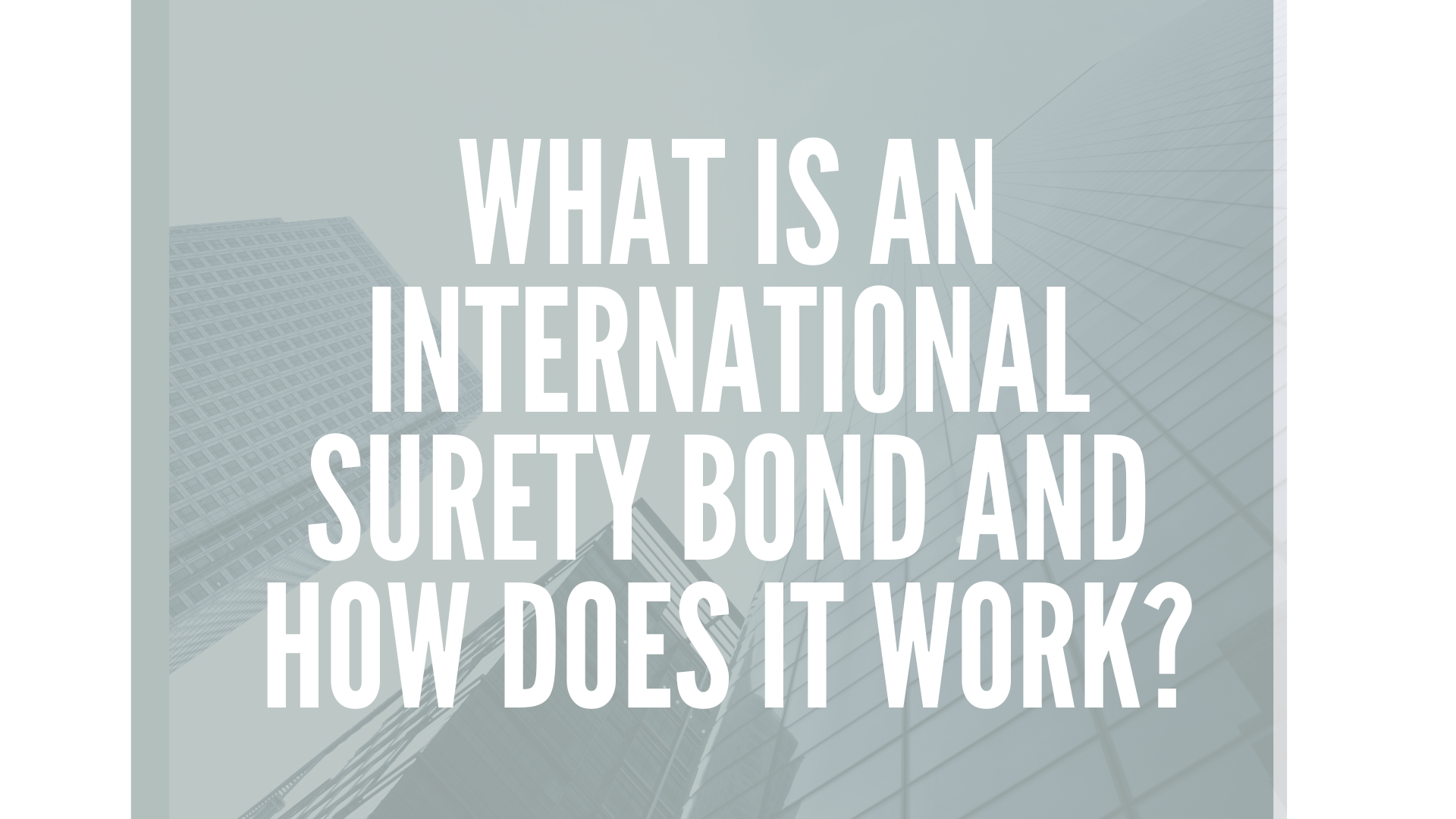What is the difference between an international surety bond and a domestic surety bond?
A contract between the principal and the surety is known as an International Surety Bond. The bond specifies both parties’ duties and responsibilities, as well as the terms and conditions that govern the agreement.
In an international bond, the surety’s job is to safeguard the bond’s customer (the principal) from financial loss if they fail to satisfy their contractual obligations. Surety agencies accomplish this by forming a contractual connection with their customer’s principal. They play one or more of three basic roles as a result of this:
- The insurer – if the agreed-upon activities cause damages that are covered by another insurance, the surety will cover the damages up to the bond’s limits.
- The guarantor – in the event that the principal defaults and the surety is required to complete their duty, they will do so at their own expense.
- The creditor – if a dissatisfied client files a claim, the creditor can sue both the principal and the surety to recoup their losses.
What is the International Surety Bond and how does it work?
In the case of a liability claim against the client, the surety will work with the principal to specify the terms that define who is responsible for what and who is liable. When both parties agree to these terms and sign off on them, the bond is issued. Both parties must follow these guidelines or risk facing financial penalties or other consequences.
The financial soundness of the surety is a major consideration when approving an overseas bond. Many countries require a powerful, recognized corporation to back up their customers’ actions and ensure that their mistakes are covered up to the bond’s full value.
The surety must fulfill this responsibility at their own expense if the principal fails to make a payment or violates another term of the contract. This means that they must provide full recompense for any damages or expenditures incurred before the consumer can compensate them (known as “the principal”).
What types of people are qualified for an International Surety Bond?
An applicant for an international bond must fulfill a number of standards. They can’t owe the contracting agency any money, they can’t have had any previous contract violations with federal agencies or fines imposed for unlawful behavior, and their personal or company credit histories must be spotless.
Although private enterprises frequently request surety bonds, federal and state governments may require them in specific circumstances to protect both customers and the government from financial risk. Depending on the demands of the customer and their industry, many types of International Surety Bonds can be issued:
A company’s contractual commitments for goods or services it offers to clients all over the world are obligated by an international performance bond.
- Tax or Revenue Bonds – These bonds are used to guarantee the payment of taxes, fees, and fines collected by government entities such as state and local governments.
- Federal Contractor’s Bond – required by federal government agencies for contractors who must post bonds to demonstrate that they will complete their projects or provide services according to the contract’s terms.
What is the procedure for obtaining an International Surety Bond?
An application must be submitted in order to receive an international surety bond. Typically, there are three processes involved in obtaining one:
- Select a surety agency that can meet your demands and inquire about the bonding process. They will schedule an interview with you in which they will inquire about your company’s history, financial solvency, and ability to meet contractual obligations in the future.
- They’ll check your company’s credit history when they’re ready. If everything meets their requirements, they may choose to send you a formal proposal outlining the contract’s terms and fees. When submitting this proposal, you will be expected to pay all premiums upfront.
- The bond is issued and you are officially bound if both parties agree to the contract’s provisions.
How much does it set you back?
The cost of an international surety bond is determined by a number of factors, including geographic location, industry type, credit history, contract amounts, and the frequency with which bonds are required.
Although bond amounts vary, they typically max out in the high six figures if a large multinational firm with good credit asks one to assure that they would meet their obligations as agreed.
What happens if your application for an International Surety Bond is denied?
After considering your application, the surety business may decide not to provide a bond. There are usually four possibilities in this situation:
- If the surety believes you do not have adequate financial soundness or good credit history, they may urge you to wait until these factors improve before submitting another proposal.
- Alternative kinds of security, such as trust funds, government guarantees, and unpaid balances on existing foreign bonds, can be suggested.
- You can work out a deal with the agency involved to get out of the contract without having to pay a penalty for defaulting. This implies you’ll have to cover all of the costs of executing the contract, as well as any residual fees from the original proposal.
- You may be able to cancel a contract without incurring additional charges related to its execution or breaking a deal with an international client or business partner in specific circumstances.

